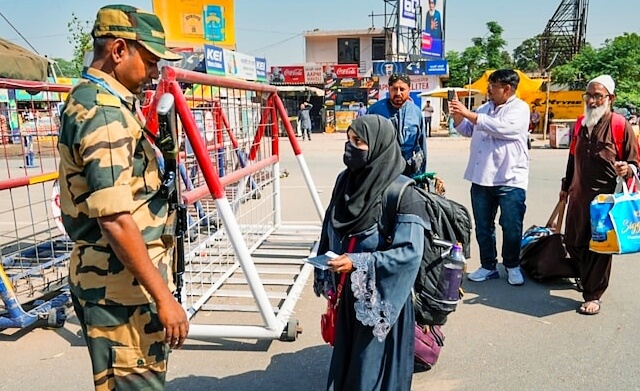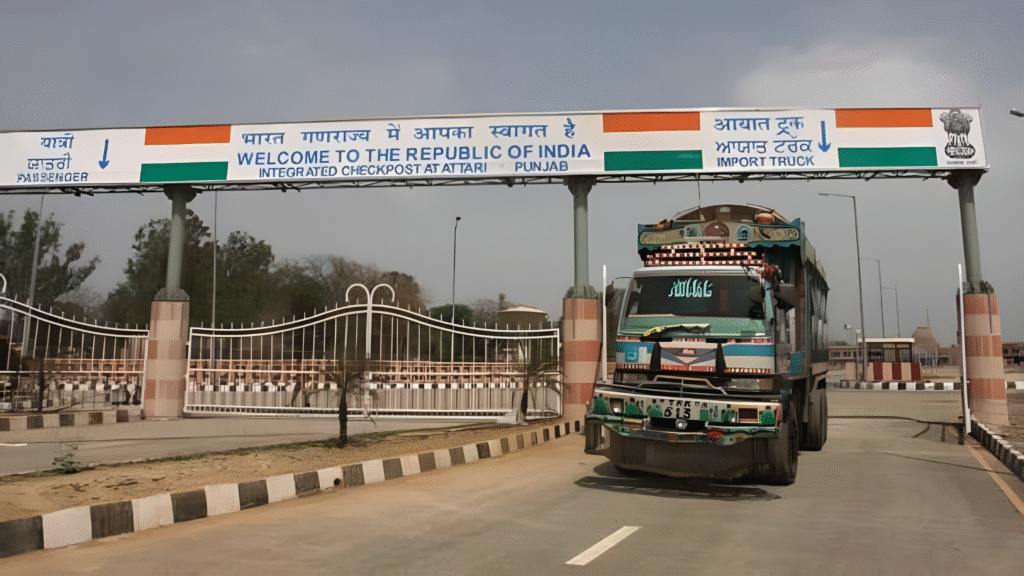India has recently permitted the entry of Afghan trucks Attari border, marking a cautious yet meaningful step toward restoring regional trade flows.
After a temporary halt due to security concerns following a terror attack in April 2025, the reopening of this route reflects India’s calculated balance between diplomacy, economics, and national interest.
The Significance of Trade via Afghan Trucks Attari Border
The 160 Afghan trucks that entered through the Attari-Wagah border were carrying dry fruits and other agricultural commodities—goods that had been stuck for weeks.

This partial reopening helps address the supply shortages in Indian markets and shows India’s intent to remain engaged with Afghanistan without formally recognizing its Taliban-led government.
By allowing these trucks to cross, India indirectly supports Afghan farmers and small exporters, while also countering inflation in domestic markets due to the earlier disruption in trade.
Regional and Strategic Implications
India’s decision to allow Afghan trucks at the Attari border serves several strategic purposes:
- Strengthening Indo-Afghan Economic Links:
Even without official diplomatic ties, limited trade fosters people-to-people contact and economic stability in Afghanistan.
- Reducing Reliance on Pakistan-Controlled Routes:
The Attari route offers India a direct channel to Afghanistan, showcasing a willingness to engage on its own terms.
- Domestic Market Relief:
The influx of Afghan trucks Attari border dry fruits is expected to stabilize prices in Indian markets, which had seen a spike due to restricted imports.
Conclusion
The re-entry of Afghan trucks at the Attari border is more than just a trade gesture—it’s a nuanced message of strategic intent. India is keeping diplomatic options open while protecting its own economic and security interests, navigating a complex regional environment with measured confidence.



